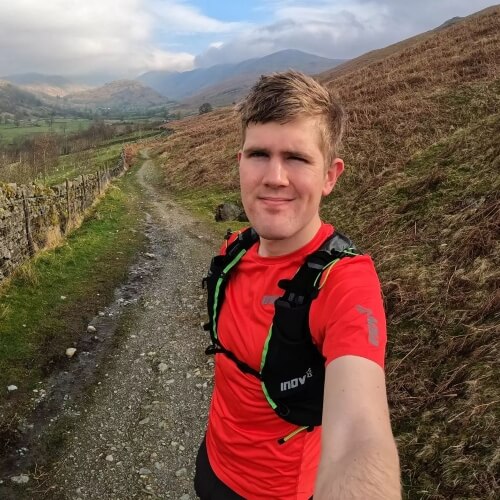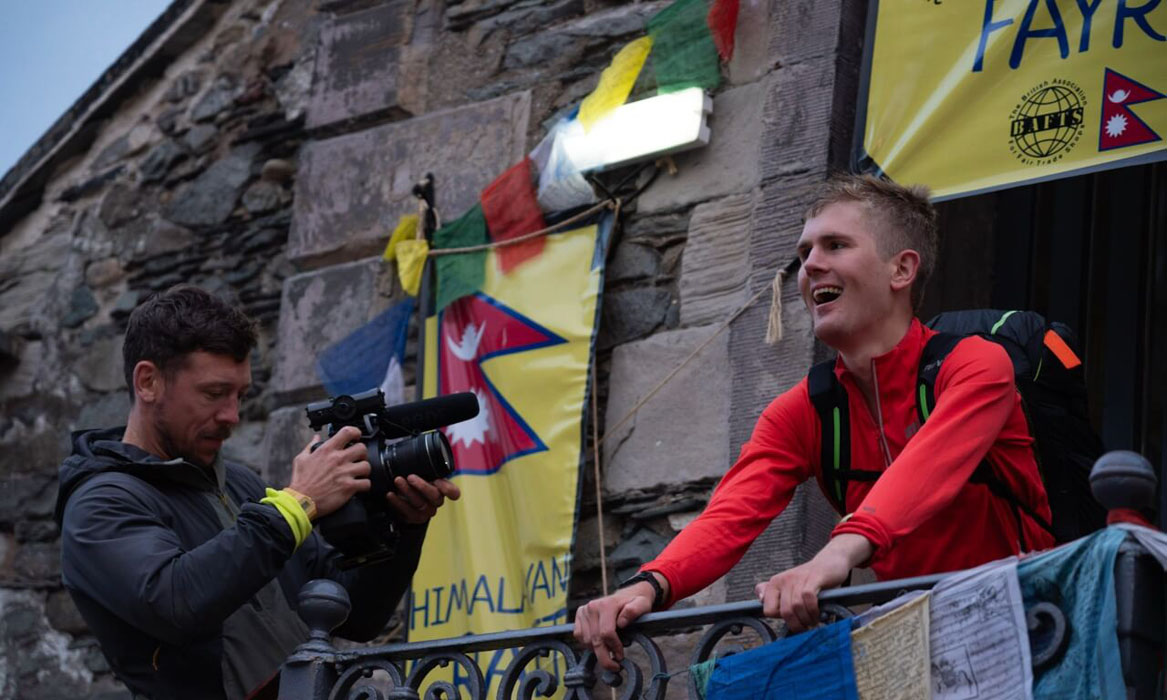
Even the most laidback of competitive runners will have experienced the pre-race jitters.
You’re on the start line as your heart rate rockets, butterflies flutter and palms sweat; the countdown from 10 seems to last for an eternity as you prime your watch.
Maybe this giddy sensation has dragged on all morning, too. Breakfast turned your stomach, sleep was futile and you’ve been too restless for anything productive. Perhaps you’ve endured a week of mysterious cold-like symptoms and niggles threatening to ruin the race you’ve spent six months training for.
Pre-race nerves or ‘jitters’ are normal. This is a natural response as your body prepares to go – the ‘fight, flight or freeze’ response which stimulates adrenaline and readies your body for action. Imagine a gazelle about to be pounced by a lion. The only problem is that nowadays the lion is just the bloke behind you dressed in X-Talons and armed with caffeine gels, but your body still responds to the perceived threat in the same way.
However, this anxiety is much less helpful when it persists for a longer period of time and you experience anxiety for weeks or months. This could mean poor sleep, excessive rumination, catastrophising and the phantom symptoms of ‘taper tantrums’ threatening your goal race or challenge. This hyper-vigilance is only going to consume energy which may even damage your performance and potentially your health: another good reason to try and control it.
I personally belong in this latter camp. Before all my big challenges I’ve experienced a considerable level of paranoia and catastrophising. I have even rescheduled challenges because of unexplained cold-like illnesses which quickly vanished, and in hindsight, were probably entirely psychological.
Whether managing your race-day nerves or the anxiety of long-term goals, here’s a few tips for keeping anxiety to your advantage:
NOTICE YOUR THOUGHTS
One week before my 3 Peaks Run in 2020 (Ben Nevis in Scotland, Scafell Pike in England, Snowdon in Wales, and all in between), I sprained my ankle, and despite reassurance from 3 individual physios and therapists, I was utterly paranoid and convinced that I was going to fail from the outset. How on earth would my ankle survive 452 miles of running with over 10,000ft of ascent? But my physio had warned that I was going to have much bigger problems to worry about than my swollen ankle. After running between 30 and 50 miles for nine consecutive days, my ankle was fine, and he was right!
It's easy to get caught in the trap of confirmation bias. When we have a particular belief or concern (for example: I can feel a niggle in my knee) then we start to look for evidence and facts to prove this story is correct, obsessively scanning for symptoms and feelings that we normally wouldn’t notice.
Our energy goes where our focus goes, so focus instead on positive visualisations: the hard training sessions, the race going well or your post-race reward. Having a positive mantra like “YOU’VE GOT THIS!” can work wonders for boosting our confidence.
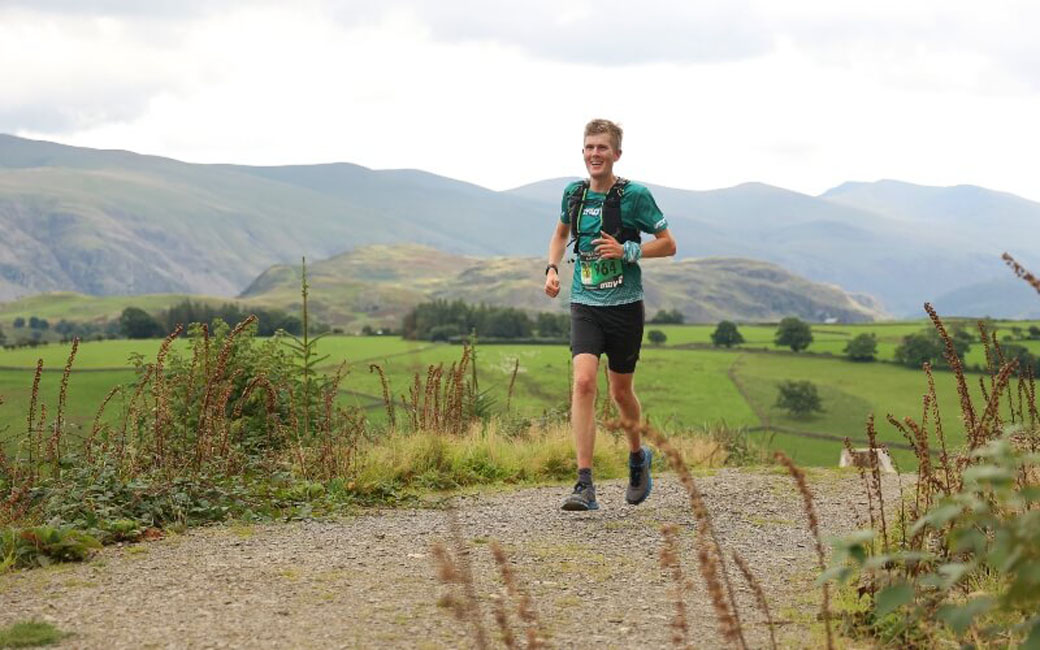
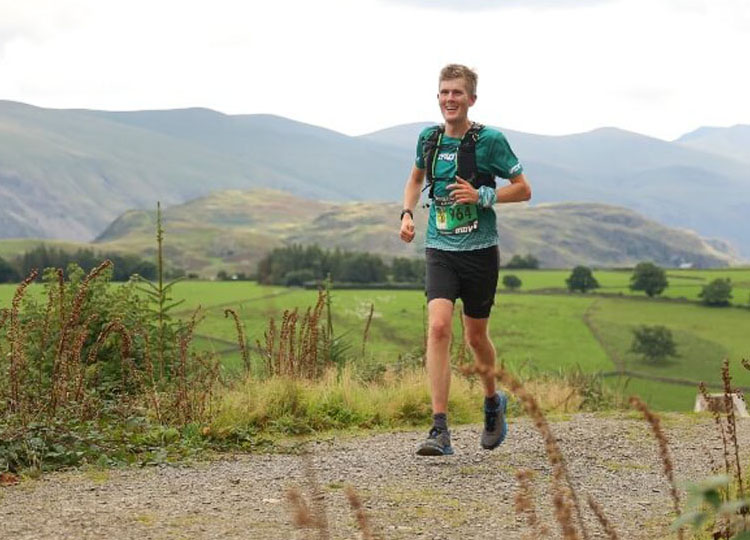
Alex competing in the Lakeland Trails Keswick 15k event in September 2023. Photo by James Kirby.
KEEP THINGS IN PERSPECTIVE
One bad night’s sleep, missing your ritual coffee or toilet stop isn’t going to completely undo your interval sessions, hard miles of training or previous race performances. Nor will you be the only person on the start line in this situation. Your event or race is only a tiny fraction of the journey this far.
Writing a list or talking about your specific worries may seem a daunting process but naming them removes uncertainty, quietens the mental noise, and allows you to identify what you can and can’t control. Your final sessions may not have gone to plan, but you can focus on your pacing and following your race plan. An excessively hot weather forecast is out of your hands, but you can plan for extra hydration and electrolytes.
STAY IN THE MOMENT
Anxiety is rooted in the future and ‘what if?’ scenarios. Getting to the start line and hearing the beep of the watch starting often brings an overwhelming sense of relief, because fear of the pain and discomfort you might experience is only experienced before it comes. It disappears once you are in the moment.
Breathwork and mindfulness are a powerful way to calm down this anxious state to bring us back into the current moment. When your heart is racing and breathing erratic, free apps such as ‘Breath’ have quick exercises which help to active the parasympathetic nervous system or ‘rest and digest’ state, which conserves energy.
Breaking the race down into small manageable sections is another good strategy. For an ultra this could mean running just one 5km at a time. Give yourself permission to quit at each one: chances are you’ll feel differently when you get there, and this will boost your confidence each time.
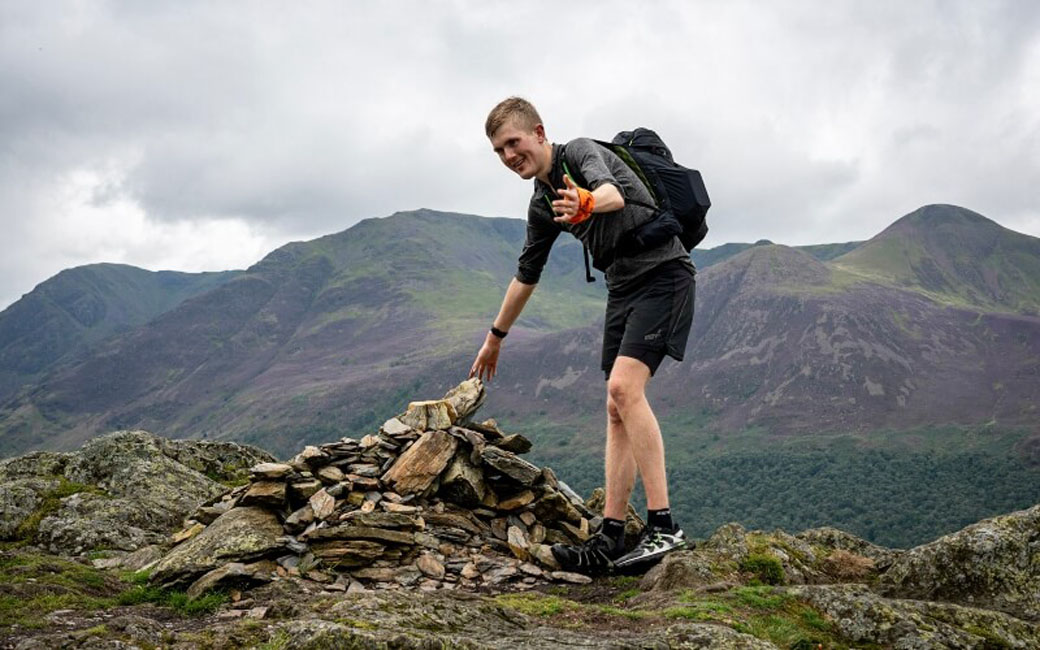
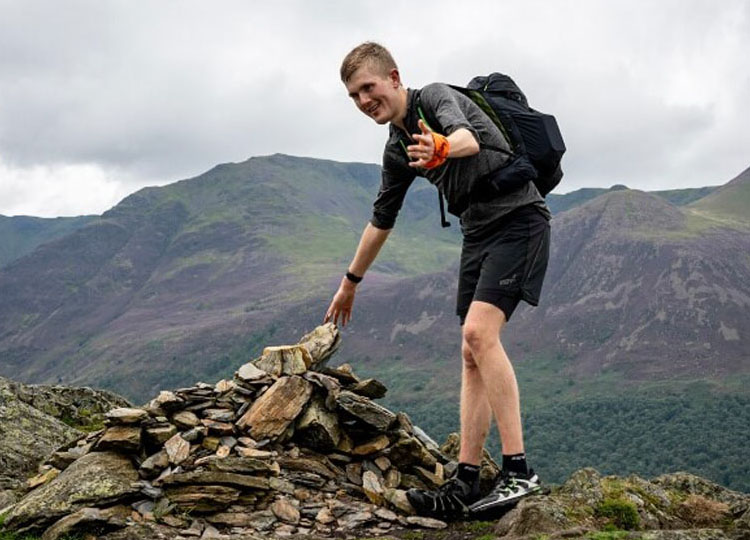
Topping out another summit, Alex on his way to completing the Frog Graham Round. Photo by Giles Thurston.
KEEP YOUR MIND & BODY OCCUPIED
Easing off training in the weeks or days before your event can leave a build-up of anxiety and stress with nowhere to go. Maintaining your usual routine can help to build a sense of certainty: get out for a gentle stroll, a swim or just spend time sat in nature.
If you’re prone to worrying then listening to music, small-talk with your fellow runners, or getting your heart rate up during the warm-up could help to alleviate some of this stress too. Caffeine may have performance-boosting qualities in small doses, but consider reducing intake on the day if you’re already feeling wired.
FINAL RACE DAY NOTES…
If anxiety is starting to significantly affect your life or becoming difficult to manage using some of the methods above, please do consider seeking professional help.
It might seem counter-intuitive that running can be an anxiety tool and a trigger at the same time but any potential negative consequences are generally far out-weighed. Remember that you chose to do this: so celebrate in embracing the discomfort, because that’s where you get the best out of yourself.
